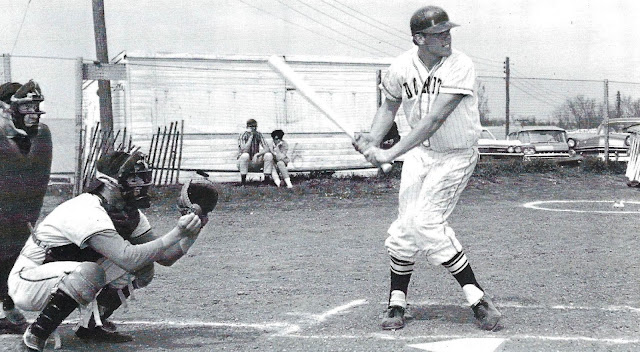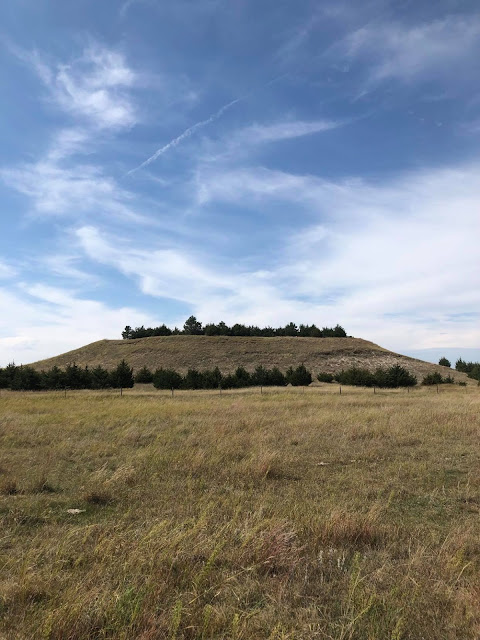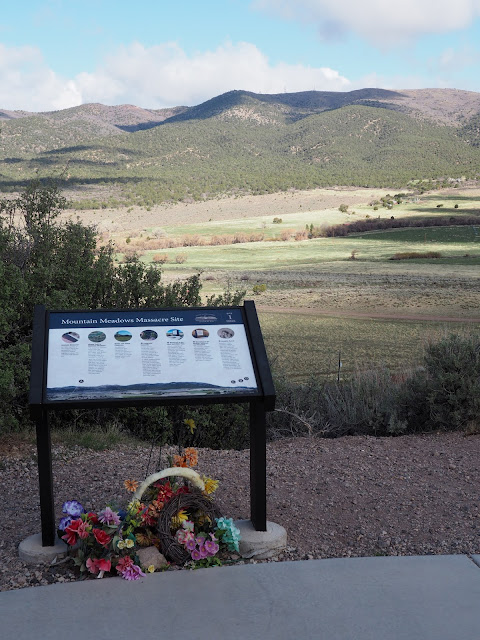I don't think there's a marketing department in the local American Legion, nor will there be any time soon. The events on Memorial Day morning are planned by men in Legion hats that look just a little bit silly on paunchy old guys forty years or more beyond their years as a fighting force. Every year, the Legion does the very same thing on Memorial Day morning all through the region, which is why there's at least some unacknowledged silliness.
I've attended a bunch of them in a bunch of small towns, and they're not all the same. Yesterday's featured the reading of the names of every last community vet--twice!--both by the conflict in which the man served and the cemetery in which they are buried. It went on and on and on, and yes there were a few women too.There's always the Pledge and the National Anthem, and a speech, sometimes a classic American Jeremiad, a sermon by a preacher who says that if America would only turn to the Lord, we'd begin a new reign of glory. Just a few years ago, I heard a preacher and National Guard officer berate a President so sharply I couldn't help assume he thought himself god almighty.
Generally, the "doings" are not upbeat. Most often, they end with "Taps," a musical ritual frighteningly familiar despite the fact that nobody hears it often at all. Yesterday the far off echo was performed by a kid so young his father stood beside him for moral support.
If there's a committee that puts the Memorial Day Doings together, the job isn't huge. Basically, once they get a speaker and pull together a color guard, all they have to do is make sure there are enough blanks for a 21-gun salute.
It seems American Legions aren't growing. The Second World War grabbed hundreds of men from communities like those in Sioux County, Iowa, and sent them off to a bloody war against a mustachioed madman and a Japanese tyrant who shared an insane desire to rule the earth. WWII was an absolutely horrible war that, in retrospect at least, is somehow easy to love.
Not so Korea. Not so Vietnam. Not so Iraq, Not so Afghanistan.
I suppose that's why Memorial Day ceremonies are run these days by fewer and fewer old men, old guys who insure the program as well as its tone remain as predictable as the ticking of the grandfather clock in the hall.
Only the most conservative churches haven't jazzed up their worship these days. Many long ago stopped singing from hymnbooks. Guitars abound. Organs collect dust or have been quietly removed. Drums beat new rhythms. What used to be is no more in churches--we've got to keep the kids so we're all contemporary.
But Memorial Day ceremonies in most villages and towns haven't changed--and likely won't, next year either.
Quite frankly, I like that. The medium is a goodly part of the message here--no glitz, no show biz. What happens on Memorial Day morning in lots of small towns is exactly what has for fifty years. Things are deadly serious because giving one's life for one's country can't be jazzed up. You can't be but cute about sacrifice. Death will never make splashy entertainment.
And that's good. Those old guys with the blue Legion hats are deadly serious because dying in defense of freedom--and giving up a son, a brother, a mother, a spouse--is deadly serious business, as righteous, finally, as anything we can do on this earth.
My grandma insisted the family attend Memorial Day ceremonies because her only brother never returned from France in 1918. She wouldn't miss the graveyard "doings," as she used to call them, and she didn't think her children should either.
I'm not a veteran. In May of 1970, I went to Washington D. C. to protest the war in Vietnam, to march in the only parade I've ever been in.
But on Memorial Day morning, I always try to make it to ceremonies in some community where ordinary men and women give patriotic speeches, read the names of fallen heroes, and salute the flag, where little kids await the peal of gunfire by covering their ears.
I go because my father spent three years on a ship in the Pacific and my father-in-law was gone just as long in Europe. I go because Grandma wants me there, wants me not to forget her brother, his life and his death, things she never could.

































